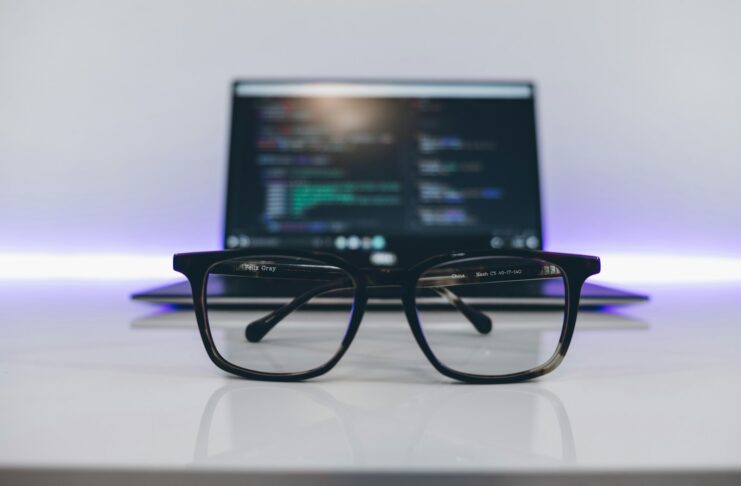British office workers are losing close to 40 minutes of productivity every day as a result of eye strain and tired eyes, according to a new national survey, with experts warning that many employers are failing to address the issue.
The research, carried out by eyecare company Ocushield, found that almost half of office-based employees regularly experience eye strain or fatigue at work. For many, this is not just an inconvenience. Around one in three report headaches or migraines linked to screen use, while almost a quarter struggle to sleep.
Survey responses from more than 2,000 office workers across Britain show that most adults now spend at least eight hours a day in front of screens. Nearly one in five exceed 11 hours daily, raising fresh concerns about the long-term impact of digital work habits on eye health and wider wellbeing.
A Widespread Problem with Workplace Implications
The findings suggest that problems such as eye strain are now widespread among the UK’s office-based workforce. A quarter of adults say they are overdue for an eye exam, with men five percent more likely to skip appointments than women.
Employers are being urged to take a more proactive approach, as the report found that around a third of office workers would welcome interventions such as anti-glare filters or scheduled screen breaks to help manage their symptoms.
Dhruvin Patel, chief executive of Ocushield and a qualified optometrist, said too many people underestimate the importance of regular eye checks and protective measures at work.
“It’s clear that some Brits are losing sight of just how important eye health is – quite literally. Staring at screens all day without proper protection or regular eye checks is a recipe for disaster.
“It’s no wonder productivity is taking a hit when nearly half of us are dealing with tired, strained eyes on a regular basis. We need to stop turning a blind eye to the problem and start seeing eye care as essential, not optional.
“Looking after our eyes shouldn’t be a vision quest. Simple steps like regular exams, anti-glare, blue light screen filters and smarter breaks can make a huge difference – and employers are perfectly positioned to lead the charge. After all, clearer vision leads to clearer thinking, better sleep and sharper performance.”
Eye Strain Linked to Broader Health Issues
The survey also reveals the knock-on effects of eye health problems at work. Up to 80 percent of employees who report regular eye strain also experience musculoskeletal pain, such as neck, shoulder or back problems. Musculoskeletal disorders are among the main causes of workplace sickness absence in the UK, compounding the productivity challenge.
Ergonomist and lead consultant Katharine Metters, from workplace solutions provider Posturite, said that vision problems could have wider implications for employee health and performance.
“We want people to feel comfortable and energised at work, and vision and eye health are a vitally important element of workplace wellbeing,” she said.
“As employers, we can support staff by helping them take care of their eyes. Our team members can’t give their best in their jobs if they’re suffering from poor vision and eye strain, and their posture may be negatively affected by these too. Squinting could lead to increased leaning forwards and consequently reducing your back support.”
Steps for Employers
Experts recommend several steps for employers to support eye health and reduce productivity losses:
Promote regular eye exams: Remind staff to book regular check-ups and provide information about the importance of eye health in the workplace.
Offer practical aids: Supply anti-glare or blue light filters, and consider online eye screening services that can be carried out in the normal work environment.
Encourage regular breaks: Schedule screen breaks and promote tactical pauses throughout the day to rest eyes and prevent strain.
Improve workstation ergonomics: Ensure screens are positioned at the correct height and distance, with adequate lighting and adjustable chairs to support good posture.
Integrate eye health into wellbeing policies: Make eye care a core part of broader health and safety programmes, recognising its impact on both wellbeing and productivity.
The survey was conducted by market research firm Obsurvant in June 2025 with a nationally representative sample of more than 2,000 office workers.


